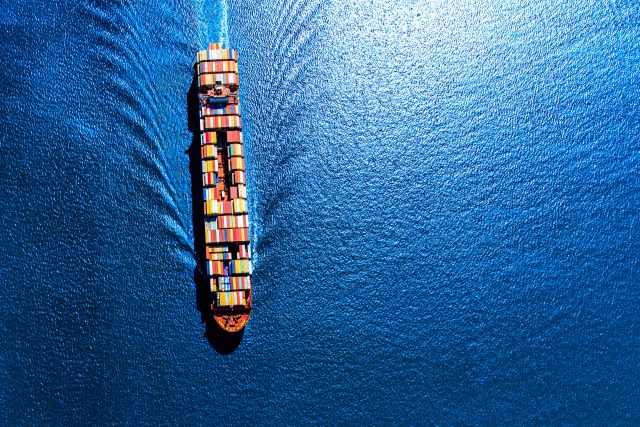Red Sea attacks ‘exacerbating the challenges’ for shipping
The situation in the Red Sea and Suez Canal from attacks by Yemen’s Houthi group has resulted in concern about deliveries and the supply chain.

It comes after the four largest shipping firms paused journeys through the area, including COSCO, CMA, Maersk and MSC, and which includes travelling through the 120-mile Suez Canal — the quickest sea route between Asia and Europe.
Specifically, the issue focused on the 20 mile Bab al-Mandab strait at the mouth of the Red Sea between Djibouti and Yemen, also called the Gate of Tears, which has seen the Houthi group target attacks on commercial ships.
A spokesperson for logistics firm Kuenhe+Nagel told the drinks business that at the time of writing it has 15 container vessels being stopped or re-routed.
The spokesperson said: “Containerised shipping represents 30% of global shipping, with an estimated total value of goods transported amounting to 1 trillion. Annually, approximately 19,000 ships navigate through the Suez Canal. The duration of an Asia-Europe voyage typically ranges from 30 to 40 days, subject to variations based on vessel type and deployed speed. An alternative route via the Cape of Good Hope adds about 6,000 nautical miles to the journey.”
Month-long extension
Kuenhe+Nagel said that choosing an alternative route from Asia to Europe may extend the journey by three to four week and other routes, such as the Transpacific, “might involve different additional transit times”.
Partner Content
The spokesperson continued: “The extended time spent on the water is anticipated to absorb 20% of the global fleet capacity, leading to potential delays in the availability of shipping resources. Moreover, delays in returning empty equipment to Asia are likely to pose challenges, further impacting the overall reliability of supply chains.
“Based on comprehensive sea explorer data, Kuehne+Nagel’s Schedule Reliability report already observes a notable decline in global on-time performance in sea freight during November 2023. The on-time performance of carrier schedules has decreased by 8 percentage points, reaching 60.8%. This trend is observed across all major trade lanes, except for the Transpacific route. The situation in the Red Sea is now exacerbating the challenges faced in this regard.”
Difficult time
Director general at the Institute of Export & International Trade Marco Forgione said that Danish giant Maersk’s move to avoid the channel “could not come at a more difficult time”, due to the run-up to Christmas and the impact on the supply chain.
The canal carries 9.2 million barrels of oil a day, around 9% of the world’s entire supply in the first half of 2023 according to data. But it also can accommodate container carriers, car carriers and general cargo ships.
Alarming
In a statement to the BBC, Maersk, said: “The recent attacks on commercial vessels in the area are alarming and pose a significant threat to the safety and security of seafarers.
“Following the near-miss incident involving Maersk Gibraltar yesterday and yet another attack on a container vessel today, we have instructed all Maersk vessels in the area bound to pass through the Bab al-Mandab Strait to pause their journey until further notice.”
Related news
Liv-ex to launch ‘Amazon Prime’ style logistics solution
Dachser expands wine and spirits logistics in APAC
LCB approaches difficult market with increasingly broad remit




